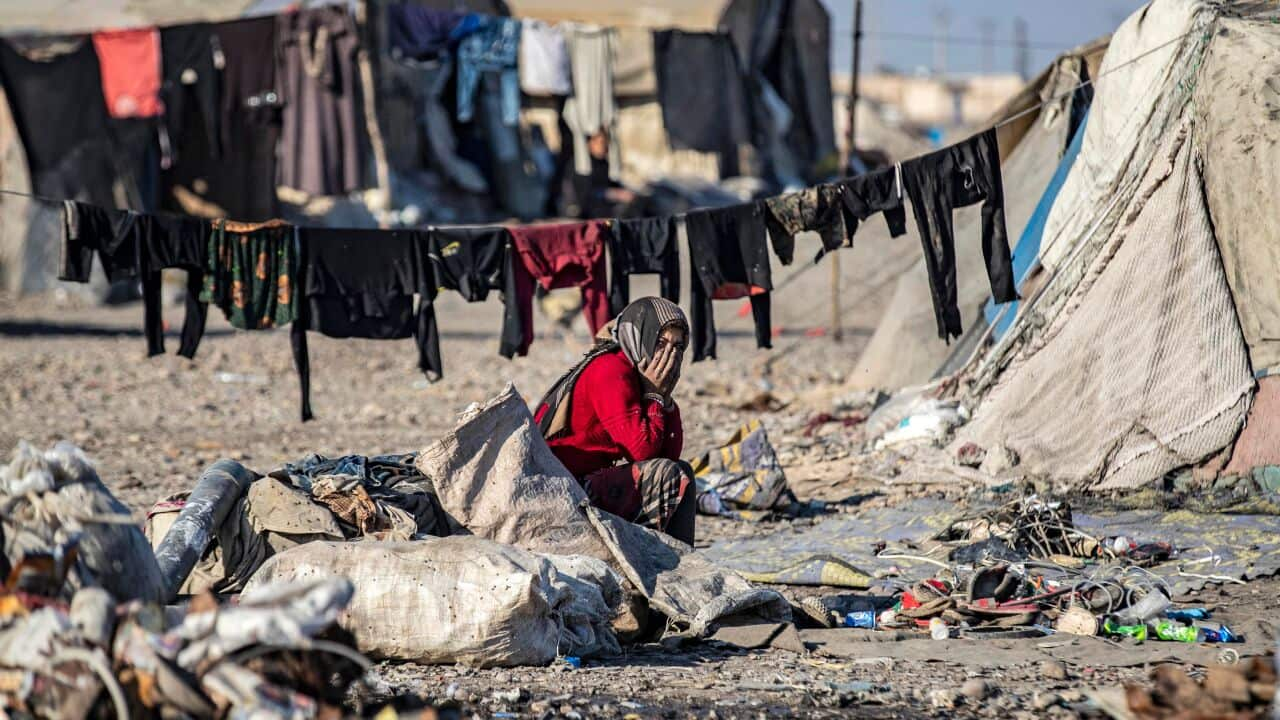KEY POINTS:
- Advocates say refugees have been left uncertain after the budget included no funding.
- Labor has committed to raising Australia's humanitarian intake.
- The government insists it will have 'more to say' soon.
Advocates say refugees have been left in limbo by Tuesday night's budget, which did not fund a promised boost to Australia's humanitarian program.
Some have accused Labor of walking away from, but the government insists "we'll have more to say" after it works through who will fill available places.
and Ukraine has deepened a pre-existing global refugee crisis. The international system is already struggling to cope with humanitarian crises across Africa and the Middle East.
Labor has committed to expanding annually at some stage — up from around 18,000 — but included no additional funding for the refugee program.
Refugee Council of Australia chief executive Paul Power said it was the first time "in living memory" a budget had not included refugee target numbers, saying it was currently "hard to tell" how the government intended to meet its target.
But Mr Power was hopeful of additional money to supplement the budget, which he said was "quite possible" in the government's mid-year economic outlook.
"The need is absolutely overwhelming for resettlement states to step up ... we're looking for the Australian government to step up in the way Labor outlined prior to the election," he told SBS News on Wednesday.
"We were certainly hoping and expecting that last night's budget papers would have actually told us where the government is going to start. But that's been put on hold for some weeks at least."
A government spokesperson told SBS News consultations over the makeup of the 2023-24 humanitarian program is underway, with submissions to close by the end of this month.
"We will have more to say on this topic in the future," they said.

Mr Power warns countries such as Türkiye have been left to do the 'heavy lifting' on refugees, despite suffering their own humanitarian crises. Source: AP / Francisco Seco
Crisis countries left to 'do the heavy lifiting'
The former Coalition government slashed Australia's humanitarian , before promising an extra 16,000 over four years after the Taliban seized Afghanistan in 2021.
The UNHCR predicts more than two million refugees will require resettlement this year, with 117.2 million to be forcibly displaced or made stateless.
Even Labor's boosted commitment is still well shy of Canada's plan to resettle 50,000 asylum seekers in 2023.
But Mr Power stressed less than 1 per cent of the world's refugees are resettled each year, and warned countries struggling with their own humanitarian crises had been left "to do almost all of the heavy lifting".
Türkiye, suffering after its own devastating earthquake in February, currently hosts at least 3.6 million refugees, while Sudan was hosting a million just three months before its own civil conflict erupted.

Türkiye is recovering from its own devastating earthquake, but is currently home to at least 3.6 million refugees.
"I think that throws a completely different light on Australia's hardline approach to people seeking asylum, and also the billions and billions of dollars we spend on detention compliance," he said.
"While [Labor's made] a significant commitment from Australia's perspective, it's just a drop in the ocean in assisting countries in the frontline of refugee movements."
Amnesty International Australia refugee rights campaigner Zaki Haidari urged Labor to use the community consultation process to raise Australia's overall intake.
Mr Haidari said Australians, who also elected a number of pro-refugee independents and minor parties, want their government to "show more humanity".
“Labor promised to do more to respond to the escalating conflicts and ongoing crises of persecution and displacement in our region ... It is devastating for many communities to see no change in this budget, but with millions more allocated to detain refugees offshore,” he said.











